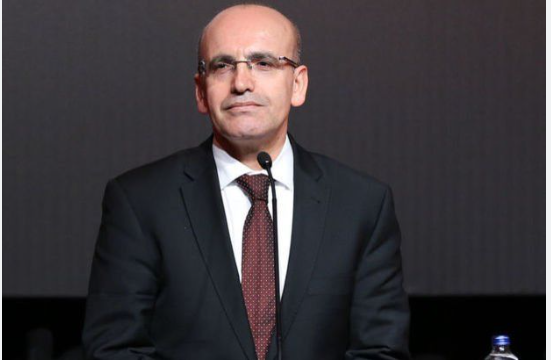The draft election manifesto of Turkish President Tayyip Erdogan’s AK Party marks a return to more orthodox, free market economic policies, four sources familiar with the matter told Reuters. The sources, declining to be named as they were not authorized to speak on the subject, also said Erdogan wanted to give a top role in running the economy to former deputy prime minister and finance minister Mehmet Simsek, who is highly regarded in international circles.
Turkey is due to hold presidential and parliamentary elections on May 14 and opinion polls show that Erdogan will face his biggest electoral challenge yet in his two decades in power.
Erdogan’s popularity has suffered mainly due to an erosion of living standards caused by the depreciation in the Turkish lira at a time when Ankara began pursuing a controversial economic model that was based on low interest rates.
In 2021 Turkey embarked on a rate-cutting cycle in the face of soaring inflation, defying traditional monetary policy and running against a global trend of rising borrowing costs.
Combined with soaring energy and food prices triggered by Russia’s invasion of Ukraine in February 2022, this led inflation in Turkey to spike to more than 85% last year.
Turkey’s fiscal woes were also exacerbated when a huge earthquake struck its southern regions on Feb. 6, killing thousands and leaving millions of people homeless and causing billions of dollars’ worth of damage.
According to the sources familiar with the draft, the AK’s manifesto for the upcoming election will make no reference to Ankara’s more recent economic policies but instead to return to his party’s prior, more orthodox approach.
The sources, declining to be named as they were not authorized to speak on the subject, also said Erdogan wanted to give a top role in running the economy to former deputy prime minister and finance minister Mehmet Simsek, who is highly regarded in international circles.
Turkish inflation hit a 24-year high above 85% in October, stoked by the series of unorthodox interest rate cuts sought by Erdogan that triggered the lira’s crash in late 2021.
Since August, the currency has been largely stable thanks to authorities’ heavy hand in the forex market.
“The approach to the economy is very similar to that of the 2002 AK Party election manifesto. In other words, the AK Party is returning to its origins,” one government official said about the draft, adding that work on it had reached the final stage.
He said that its priorities included free market economy rules and practices parallel to those applied in the global economy, with “no sign of any kind of non-market practices.”
“A pivot back to orthodox economic policy would be welcomed by investors,” said Blaise Antin, head of EM sovereign research at asset manager TCW in Los Angeles.
“But foreign investors are likely to treat such news with extreme caution”, he added, “given multiple past head-fakes by Turkish authorities and President Erdogan’s very public skepticism about conventional monetary policy and market-oriented economic policies more generally.”
A senior AKP official said the manifesto made no reference to the new economy model but emphasized principles previously advocated by the AKP, such as fighting inflation, accountability in the public sector and transparency in tenders.
He said Erdogan’s final approval of the manifesto would be required and so far, he had not conveyed any dissenting opinion.
“If he does accept, it will eventually bring radical changes in both the cabinet and the management of the economy,” he said.
Among Erdogan’s goals was the appointment of Simsek. “All Turkey knows Simsek’s approach and success. If he takes office, a radical change is inevitable in economic policies, the bureaucracy and cabinet members to work in harmony with him,” the AKP official said.
In 2012, when Simsek was actively involved in running the economy, the foreign share of the lira-denominated bond market peaked around 25%. It stood at 0.8% at end-January, Treasury data shows. Simsek was deputy prime minister until 2018.
PATurkey interviewed two economists who preferred to remain anonymous who had not heard such rumors, and opined that in any case Mehmet Simsek is unlikely to return without iron-clad guarantees of being given full control of fiscal and monetary policy. One source added, “Erdogan has in the past wowed to adopt conventional monetary policy several times, but changed his mind in mid-course. His promises have no credibility for the business community at this point”. He recalled the case of Naci Agbal who replaced Erdogan’s son-in-law and the then economy czar Berat Albayrak with a mandate to fix monetary policy and replenish Central Bank’s vanishing FX reserves. He was fired a few months later, to be replaced by Prof Sahap Kavcioglu, who redoubled on Albayrak’s insane exchange rate control policies.
Follow our English language YouTube videos @ REAL TURKEY: https://www.youtube.com/channel/UCKpFJB4GFiNkhmpVZQ_d9Rg
And content at Twitter: @AtillaEng
Facebook: Real Turkey Channel: https://www.facebook.com/realturkeychannel/
